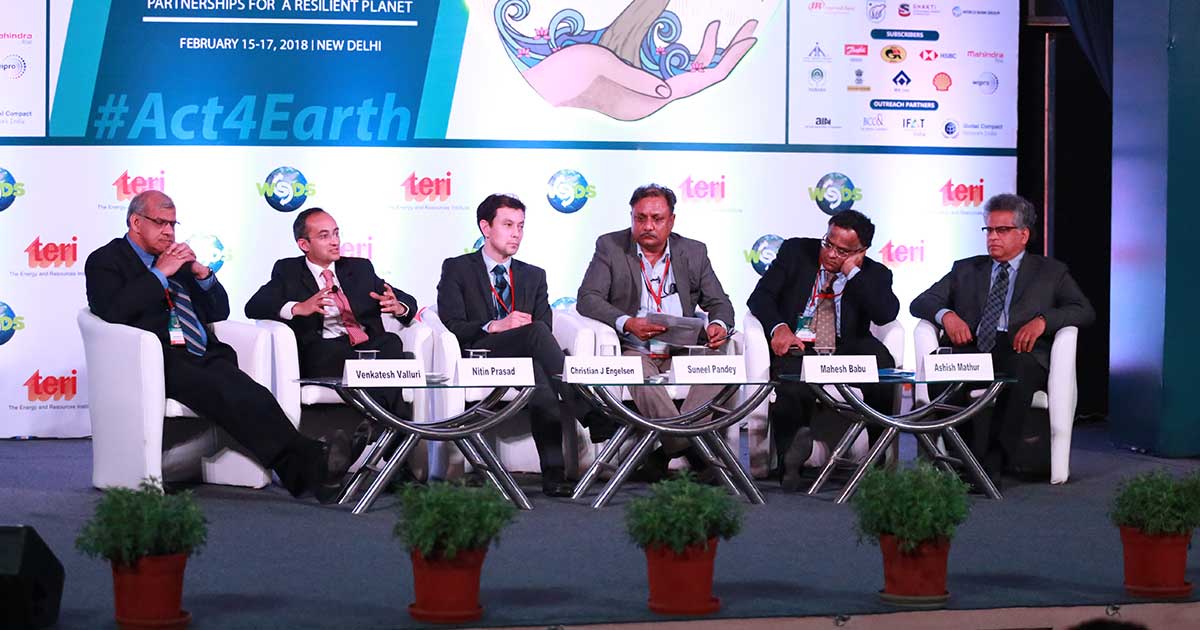
One Man's Trash is Another Man's Gold

India generates 62 million tonnes of waste every year. Every phase of the waste management cycle is mired by complex problems. Municipalities spend 80% of their funding on just collecting waste, which is then shipped off to unscientifically designed 'dumpsites'.
"What results are fires, pollution, and uncontrolled emissions, from the heavy volumes of unprocessed waste, proof that this is not the waste management solution we need,” said Mr Nitin Prasad, Chairman, Shell India, at the World Sustainable Development Summit 2018. “We all understand the social impact of landfills,” he said. What is needed are “economic models, that offer sufficient returns”. While a common, and almost unanimously spoken theme at the 2018 Summit, has been the role of technology and innovation as a catalyst for sustainability, can a for-profit approach be the catalyst for innovation to combat India's ever-increasing waste?
Making revenue from rubbish
"The methane that today causes fires at landfills can be given a higher purpose. The organic greenhouse gas can now be taken directly from landfills, and transferred via gas pipelines," Mr Prasad said. IH2, another Shell technology, can take a mixed feedstock of waste, and economically process it to BS 6/Euro 6 fuels, with greenhouse gas reduction of 70–90%.
"There are many business steams that can come, literally, from garbage," Mr Mahesh Babu, Managing Director, IL&FS explained. On construction and demolition waste, IL&FS has set up India's first C&D waste management plans, and it has processed over 3 million tonnes of waste, which Mr Babu said, "would have ended up in the Yamuna or in the Ridge", in Delhi. On biodegradable waste, Mr Babu said a huge opportunity for the country can be realized through partnership with fertilizer companies and farming institutions. Indian soil, he explained, is highly bereft of organic material. To convert waste into energy, IL&FS runs India's first Euro-norm compliant plant in the capital.
'Partnerships will make Swachh Bharat work'
To realize the full potential of India's waste, Mr Babu gave examples of great business partnership opportunities founded on transforming waste: fertilizer companies can use waste for organic fertilizer, construction companies who want to use recycled materials; and discoms that can use plastics and other materials to generate energy. “Such partnerships must be put in place for Swachh Bharat to work,” he said, “without which it will be impossible for financially and organizationally constrained municipalities to solve India’s waste problems."
Last mile delivery…of profits
"These business partnerships do not have to be at the highest levels of institutional power. For solid waste management, Jamshedpur Utilities and Services Company (JUSCO) created a business model for social entrepreneurship, training Jamshedpur's ragpickers to become social entrepreneurs. They tied up with 28,000 homes for door-to-door collection of segregated waste,” said Mr Ashish Mathur, Managing Director, JUSCO. The business of waste management cannot work without this paradigm shift in people's thinking about waste, he added.
These examples show the abundant proof of sustainable business concepts. What India needs, Mr Prasad said, summing up the spirit of the session, is a "single package of solutions at city-by-city level across a range of waste types." "Combine solutions into one cohesive, economically-viable package—and we're going to tackle our landfills," he said.